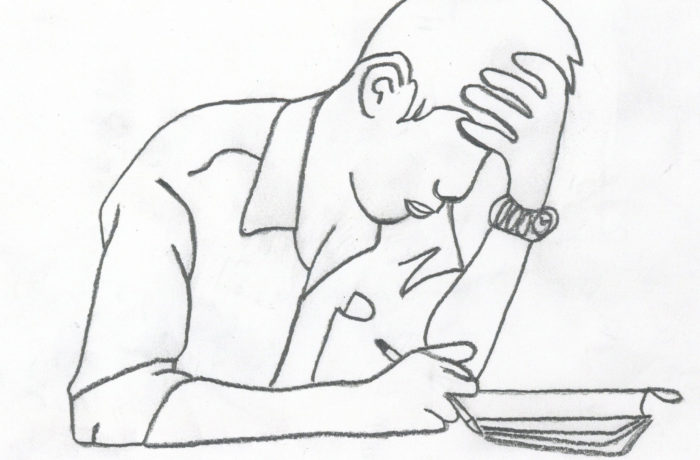
By Jess Ward
Lifestyle & Politics Editor
As dreamy as it may seem to experience a whole new world for an entire semester, the process getting there can be stressful and sometimes the experience itself can be surprising, but students don’t have to go through the stress alone. This collection from students currently abroad or home after their experience offers first-hand advice and insight drawn from time away.
Jet-set to Florence:
“I am currently in Florence, Italy” said Christina Scenna ’19. “For me, the process of deciding was super easy. Both sides of my family are from Italy so I had my heart set there almost two years before applying.” Scenna added that she picked the city of Florence because a program through Syracuse University offered the exact classes she was looking to take as a sociology major.
“My favorite part of Florence is living with a host family. You get to speak Italian, and eat authentic and healthy Italian food.”
As for everyday changes in her lifestyle, Scenna noted that “I’ve definitely noticed I’m eating healthier and walking more. I live a twenty-minute walk away from my school and a forty-minute walk from the center [of the city].”
As great as her experience has been, she has had minor hiccups. “My least favorite part is definitely the medicine. The dosages are lower here than in the US so sometimes I have had to buy two bottles of melatonin or ibuprofen, but it’s honestly not that bad.”
While she was dead-set on going to Italy, she took the time to research all her options thoroughly before making her decision.
The Mountains are Calling:
“I studied abroad in Peru with SFS. I wanted to do something different with my study abroad experience, rather than the generic European trip,” said Will Durkin ‘18. “I’m a biology and environmental studies double major. The appeal to, not only travel and visit parts of the Amazon Rainforest and Andes Mountains, but to research and study in those unique and unbelievable ecosystems was a no-brainer.”
As perfect a choice Peru became for Durkin, it didn’t come easy. “It’s really hard to pick a location. I struggled with it for months before I finally chose Peru. For me, it came down to program type, the language spoken, and cultural values and how comfortable I was with that.” Durkin added that he has been speaking Spanish since high school. “I also considered the type of environment I was going to be submerging myself into.”
In Peru, Durkin explored the Amazon, hiked up glaciers and the high Andes mountains, and travelled through the vast altipano, or high plains region. These were only a few of his favorite aspects of his experience. “My fellow students made the trip that much better, and my professors were some of the most knowledgeable people I have ever met.” During his time abroad, he completed an independent research topic where he studied the population dynamics of tree ferns in the Eastern Andes.
His one complaint with the trip was that he could not stay longer. “I could not have picked a better place for me. I came out on the other side a more responsible, independent, and capable adult. I feel more confident whenever I have to step outside of my comfort zone.”
Living the dream?
Emma Drennen ’19 had a similar experience in knowing that she had always wanted to study abroad in Paris. “I’m a French and theatre double major, so I wanted to study somewhere where I could really practice my French as well as have the opportunity to experience the theatre world in a city with rich theatrical history.” She also mentioned that she had dreamed of living in Paris since she was 16-years-old, making this the perfect time to make that dream a reality.
Drennen has noticed her lifestyle has changed in smaller, but more rewarding ways than expected. “I spend a lot of time just sitting and drinking coffee or reading. I generally take my time with things much more than I would in the fast-paced US.”
She also lists some of her favorite cultural phenomena she has experienced. “My favorite thing about Paris is the rich art history. Especially in areas like the Latin Quarter or Montmartre, you can just feel the vibrant artistic spirit. I also love that there’s bread with every meal and it’s socially acceptable to drink at 1 p.m. on a Tuesday.”
She noticed that her biggest challenge was the lack of convenience that the US is known for. “I would kill for a Walmart or Target because going to 12 different tiny stores to get everything you need gets old.”
However, unlike Scenna, Drennen was met with conflicting feelings at the beginning of her time abroad. “For a while I wished I had studied in the UK or Italy—places I’ve visited where I felt the general atmosphere was more welcoming than that of Paris. But now that I’ve been here longer, I feel like I’ve come to appreciate the grouchy Parisian “grimace” on the Metro.”
“Something I think about a lot is some advice my dad gave me when I used to talk about how much I wanted to leave the US: life is just life somewhere else. I think wherever you decide to go, don’t go into it expecting it to be this magical mythical land full of constant Instagram moments. I think it’s important to approach the location as an adventure, but also an adventure that you’ll have to live with for three to five months. Challenge yourself and expand your horizons and be brave, but take the time to really ask yourself, ‘could I really live there?’”
A change in scenery
Though for some students, knowing where to study isn’t as easy as finding a place that fits both majors and personal interests. “I honestly barely researched anything before applying for a program” said Nellie Putur ’19. “I never even considered anywhere outside of Europe and I’d heard great things about DIS so I applied there without much thought. I applied for the fall 2017 session in Copenhagen, but it was full so they offered me Stockholm instead. I didn’t really care where I went abroad, I just wanted to go.”
Like Scenna and Drennen, Putur noticed her way of life had changed in some weird ways. “If you go to Europe at all, bring a water bottle everywhere you go because water isn’t free at restaurants.”
Putur advises that the best thing to do before applying to any program is to do prior research on location and program. “I’d already been to Europe three or four times, so it might have been cool to branch out a little more. Stockholm was fun, and Sweden is an awesome country so I’m glad I went, but had I done more research outside of Europe, I’m not sure I would have chosen it.”
While studying abroad is highly recommended for any and all students looking to branch out of their comfort zone, there are many things to consider while looking through program pamphlets. Find a place where you can take classes you will benefit from, where your personal interests can be explored or indulged, and somewhere you can really see yourself growing.


